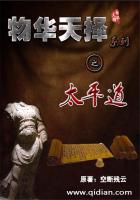Mrs.Bread had always looked to Newman as if she knew secrets;and as he apparently enjoyed her esteem, he suspected she might be induced to share her knowledge with him.
So long as there was only Mrs.Bread to deal with, he felt easy.
As to what there was to find out, he had only one fear--that it might not be bad enough.Then, when the image of the marquise and her son rose before him again, standing side by side, the old woman's hand in Urbain's arm, and the same cold, unsociable fixedness in the eyes of each, he cried out to himself that the fear was groundless.
There was blood in the secret at the very last! He arrived at Fleurieres almost in a state of elation; he had satisfied himself, logically, that in the presence of his threat of exposure they would, as he mentally phrased it, rattle down like unwound buckets.
He remembered indeed that he must first catch his hare--first ascertain what there was to expose; but after that, why shouldn't his happiness be as good as new again?
Mother and son would drop their lovely victim in terror and take to hiding, and Madame de Cintre, left to herself, would surely come back to him.Give her a chance and she would rise to the surface, return to the light.
How could she fail to perceive that his house would be much the most comfortable sort of convent?
Newman, as he had done before, left his conveyance at the inn and walked the short remaining distance to the chateau.
When he reached the gate, however, a singular feeling took possession of him--a feeling which, strange as it may seem, had its source in its unfathomable good nature.He stood there a while, looking through the bars at the large, time-stained face of the edifice, and wondering to what crime it was that the dark old house, with its flowery name, had given convenient occasion.
It had given occasion, first and last, to tyrannies and sufferings enough, Newman said to himself; it was an evil-looking place to live in.Then, suddenly, came the reflection--What a horrible rubbish-heap of iniquity to fumble in! The attitude of inquisitor turned its ignobler face, and with the same movement Newman declared that the Bellegardes should have another chance.
He would appeal once more directly to their sense of fairness, and not to their fear, and if they should be accessible to reason, he need know nothing worse about them than what he already knew.
That was bad enough.
The gate-keeper let him in through the same stiff crevice as before, and he passed through the court and over the little rustic bridge on the moat.The door was opened before he had reached it, and, as if to put his clemency to rout with the suggestion of a richer opportunity, Mrs.Bread stood there awaiting him.
Her face, as usual, looked as hopelessly blank as the tide-smoothed sea-sand, and her black garments seemed of an intenser sable.
Newman had already learned that her strange inexpressiveness could be a vehicle for emotion, and he was not surprised at the muffled vivacity with which she whispered, "I thought you would try again, sir.
I was looking out for you."
"I am glad to see you," said Newman; "I think you are my friend."Mrs.Bread looked at him opaquely."I wish you well sir;but it's vain wishing now."
"You know, then, how they have treated me?""Oh, sir," said Mrs.Bread, dryly, "I know everything."Newman hesitated a moment."Everything?"Mrs.Bread gave him a glance somewhat more lucent.
"I know at least too much, sir."
"One can never know too much.I congratulate you.
I have come to see Madame de Bellegarde and her son," Newman added.
"Are they at home? If they are not, I will wait.""My lady is always at home," Mrs.Bread replied, "and the marquis is mostly with her.""Please then tell them--one or the other, or both--that I am here and that I desire to see them."Mrs.Bread hesitated."May I take a great liberty, sir?""You have never taken a liberty but you have justified it,"said Newman, with diplomatic urbanity.
Mrs.Bread dropped her wrinkled eyelids as if she were curtseying;but the curtsey stopped there; the occasion was too grave.
"You have come to plead with them again, sir? Perhaps you don't know this--that Madame de Cintre returned this morning to Paris.""Ah, she's gone!" And Newman, groaning, smote the pavement with his stick.
"She has gone straight to the convent--the Carmelites they call it.
I see you know, sir.My lady and the marquis take it very ill.
It was only last night she told them."
"Ah, she had kept it back, then?" cried Newman."Good, good!
And they are very fierce?"
"They are not pleased," said Mrs.Bread."But they may well dislike it.
They tell me it's most dreadful, sir; of all the nuns in Christendom the Carmelites are the worst.You may say they are really not human, sir;they make you give up everything--forever.And to think of HER there!
If I was one that cried, sir, I could cry."Newman looked at her an instant."We mustn't cry, Mrs.Bread; we must act.
Go and call them!" And he made a movement to enter farther.
But Mrs.Bread gently checked him."May I take another liberty?
I am told you were with my dearest Mr.Valentin, in his last hours.If you would tell me a word about him!
The poor count was my own boy, sir; for the first year of his life he was hardly out of my arms; I taught him to speak.
And the count spoke so well, sir! He always spoke well to his poor old Bread.When he grew up and took his pleasure he always had a kind word for me.And to die in that wild way!
They have a story that he fought with a wine-merchant.I can't believe that, sir! And was he in great pain?""You are a wise, kind old woman, Mrs.Bread," said Newman.
"I hoped I might see you with my own children in your arms.
Perhaps I shall, yet." And he put out his hand.Mrs.Bread looked for a moment at his open palm, and then, as if fascinated by the novelty of the gesture, extended her own ladylike fingers.
Newman held her hand firmly and deliberately, fixing his eyes upon her.
"You want to know all about Mr.Valentin?" he said.
"It would be a sad pleasure, sir."















